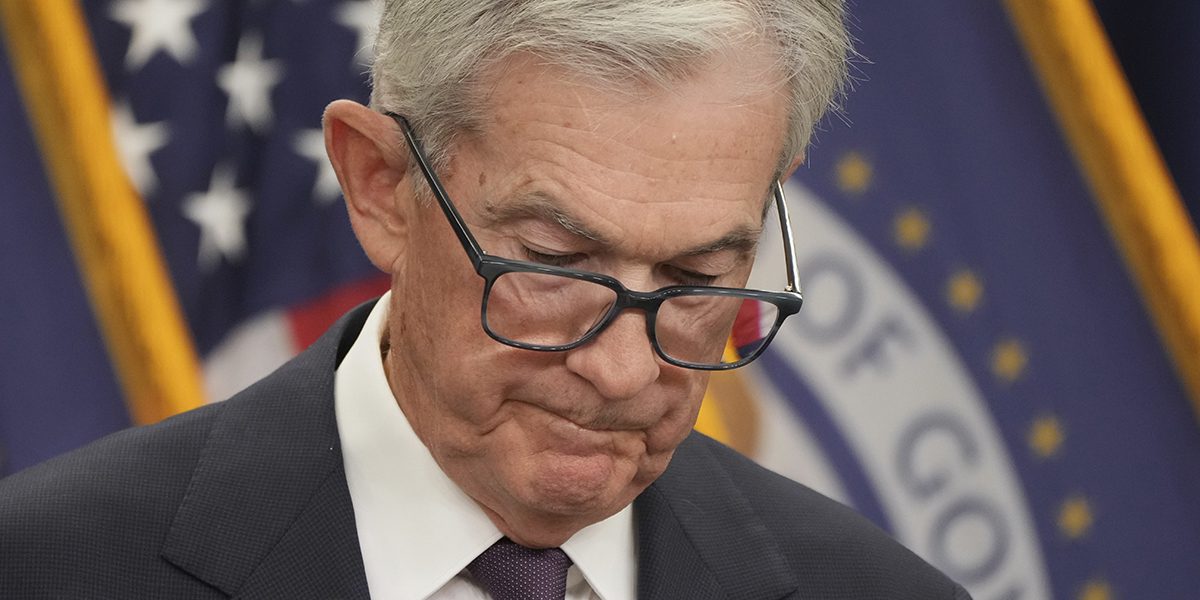World
Jerome Powell Faces Criticism as Economic Growth Projections Falter

Federal Reserve Chairman Jerome Powell is facing increased scrutiny following his recent comments on the state of the U.S. economy. In a press conference, Powell projected a dismal growth rate of only 1.6% for the current year and the next, raising eyebrows among economists and investors alike. This announcement comes after the U.S. economy experienced a solid growth rate of 3.3% in the second quarter of this year, with the Federal Reserve Bank of Atlanta forecasting a growth of 3% for the third quarter.
Critics argue that Powell’s pessimistic outlook fails to reflect the current economic landscape. Notably, he neglected to mention that real household incomes have risen by $1,100 in the first seven months of 2025, nor did he acknowledge the significant capital investment that has surged in recent months. His remarks seem particularly jarring in light of the economic recovery and the capital investment commitments amounting to hundreds of billions expected next year.
Powell’s comments have been interpreted as a direct criticism of former President Donald Trump and his economic policies, often referred to as Trumponomics. While Powell noted that Trump’s tariffs and immigration policies have constrained growth, he overlooked the positive impacts of the Trump tax cuts and deregulation efforts, which have contributed to a more robust economic environment.
Inflation and Economic Stability
The Fed chairman’s tenure has not been without controversy. During former President Joe Biden‘s administration, inflation surged to levels not seen in nearly four decades, causing economic hardship for many Americans. Powell’s earlier assurances that inflation was “transitory” have been heavily criticized, especially since grocery prices have risen significantly during his leadership.
In a pointed critique, former World Bank President David Malpass emphasized that Powell’s primary responsibility should be to maintain the stability of the dollar. He and others, including economic commentator Steve Forbes, argue that Powell’s adherence to certain economic doctrines has led to misguided policies that have destabilized financial markets. Critics contend that the Fed should prioritize a stable monetary policy rather than chase economic growth that may lead to inflation.
Powell’s defenders often point to the need for the Federal Reserve’s independence. While this is essential, there is also a call for accountability and competence in monetary policy. Under Powell’s leadership, many feel that the central bank has strayed from its core mission, leading to increased economic volatility.
Future of the Federal Reserve
As the economic landscape evolves, there are calls for a reevaluation of the Federal Reserve’s approach. Some suggest that adopting a more rules-based monetary policy, possibly aligned with a commodity standard, could foster greater stability. Observers are hopeful that the upcoming appointment of a new Fed chairman, just seven months away, will bring a fresh perspective and rectify the missteps of Powell’s administration.
In summary, Powell’s recent statements on economic growth have ignited a debate about the effectiveness of current policies and the future direction of the Federal Reserve. As scrutiny intensifies, stakeholders await to see how the central bank will navigate these challenges in the months ahead.
-

 Top Stories4 weeks ago
Top Stories4 weeks agoTributes Surge for 9-Year-Old Leon Briody After Cancer Battle
-

 Entertainment2 months ago
Entertainment2 months agoAimee Osbourne Joins Family for Emotional Tribute to Ozzy
-

 Politics2 months ago
Politics2 months agoDanny Healy-Rae Considers Complaint After Altercation with Garda
-

 Top Stories2 months ago
Top Stories2 months agoIreland Enjoys Summer Heat as Hurricane Erin Approaches Atlantic
-

 World3 months ago
World3 months agoHawaii Commemorates 80 Years Since Hiroshima Bombing with Ceremony
-

 Top Stories3 months ago
Top Stories3 months agoFianna Fáil TDs Urgently Consider Maire Geoghegan-Quinn for Presidency
-

 World3 months ago
World3 months agoGaza Aid Distribution Tragedy: 20 Killed Amid Ongoing Violence
-

 World3 months ago
World3 months agoCouple Convicted of Murdering Two-Year-Old Grandson in Wales
-

 Top Stories4 weeks ago
Top Stories4 weeks agoNewcastle West Woman Patricia Foley Found Safe After Urgent Search
-

 Top Stories2 months ago
Top Stories2 months agoClimbing Errigal: A Must-Do Summer Adventure in Donegal
-

 Top Stories2 months ago
Top Stories2 months agoHike Donegal’s Errigal Mountain NOW for Unforgettable Summer Views
-

 World3 months ago
World3 months agoAristocrat Constance Marten and Partner Convicted of Infant Murder









